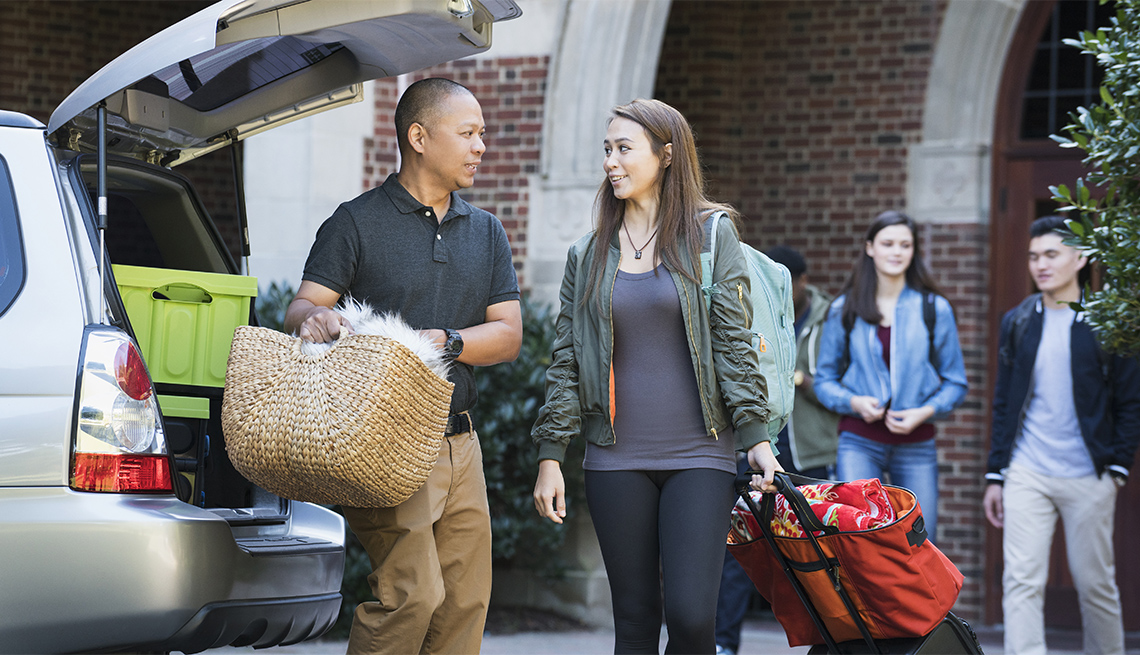
College checklist for parents and students
- Select a language for the TTS:
- UK English Female
- UK English Male
- US English Female
- US English Male
- Australian Female
- Australian Male
- Language selected: (auto detect) - EN
Play all audios:

2. LEGAL PAPERWORK Before leaving for college, The National Law Review recommends creating at least three legal documents: * HIPPA authorization form, which allows health care workers to
discuss the child's medical information with their parents. * Health care power of attorney, which gives parents the ability to make decisions about medical care in an emergency where
your child is unable to make their own decisions. * General durable power of attorney, which grants a parent the authority to act on behalf of an incapacitated adult child, allowing you to
manage finances, apply for government benefits or break a lease. Online services offer low-cost versions of each of these forms, but you will need to pay attention to details such as the
specific requirements of your home state and whether the forms need to be notarized. If your family has complex issues to address, such as a child's unique health history or parents who
are divorced, you probably will want to consult with an attorney to tailor the documents to your situation. If your child is attending school in a different state, parents should research
how the laws differ from their home state. For example, the penalties for a minor possessing alcohol may be much harsher at college than at home. And even though marijuana is legal in
several states, the laws about purchasing and possessing it differ from state to state, says Tevera Stith, the vice president for college through career for the Washington, D.C., chapter of
the KIPP charter school network and a former college admissions counselor. "You're responsible once you go across state lines to know what the rules are there,” she points out.
Finally, you may want to have your student sign a waiver from the Family Educational Rights and Privacy Act (FERPA), which protects the privacy of their academic records. Without it, you
won't be able to look at their grades or discuss their academic progress with school officials. 3. THE EMOTIONAL ROLLER COASTER It's important to take care of medical and legal
issues early, to concentrate on packing in the final weeks. But also be prepared for emotional reactions, both from yourself and your child. Many students work to “soil the nest” — cause
strife in the family — before they leave, Harrington says. “It's much easier for them to leave when they've made it an uncomfortable situation." On the flip side, parents may
also be going through a range of feelings — including loss and apprehension about a new family dynamic, which may include a quieter household or even an empty nest. Parents should create an
“open dialogue” about their own feelings, Stith advises, “without bombarding” their children. And be prepared to see a little less of your child before they leave for college. "Parents
need to check themselves, because while you are a big part of your child's life, you're not the only part,” Stith says. “A kid will want to spend a lot of time with their best
friend, boyfriend or girlfriend. They'll feel like this is the last time they're going to see them." By creating an open dialogue about their feelings, Stith says, parents
“can process their own emotions.” The best approach is to be clear about what time you want to spend with them in the final weeks, whether it's a family game night or a special dinner
out, Kamin says. But keep in mind that they may be spending most of their time with friends.
